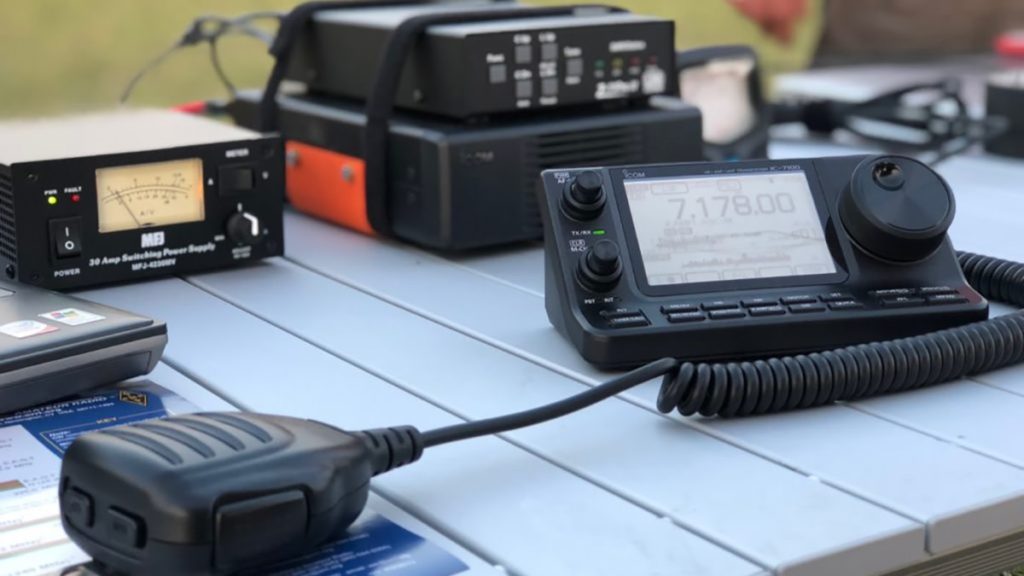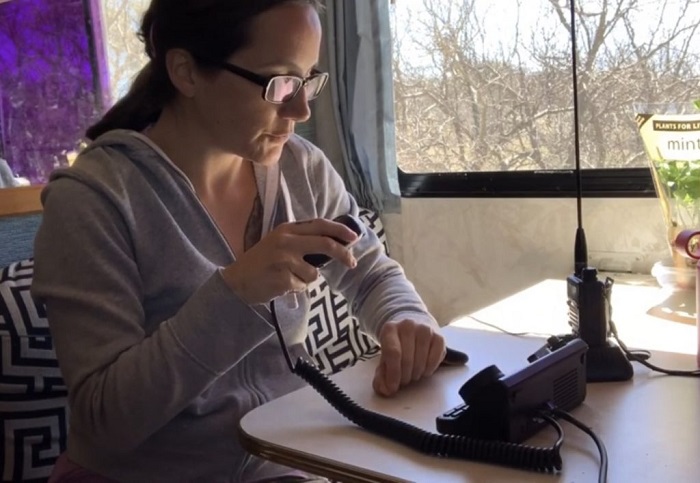How to Find Important Ham Radio Frequencies
written by Morgan Rogue – SHTF BLOG https://www.shtfblog.com/

Are you a ham? Looking for some ham radio frequencies to program into your radio? Then you’ve come to the right place!
I’m a huge fan of ham radio. It has opened up our world to communication on a whole other level. We used to be die hard CB people until our friend kept telling us over and over again how horrible CB was compared to ham. He convinced us to finally get our licenses (my husband and I had both wanted to get it for a long while, but felt satisfied with our setup and never bothered). We now see what he was talking about. Trust me when I tell you that ham is the world you want to be in.
When it comes to reaching out to others, it might feel a little complicated at first. Not to mention intimidating. If you’ve passed your ham exam, then chances are you’ve got a basic idea of how ham works; but the real learning begins when you start making contacts.
The Ham Community
The ham community is friendly, knowledgeable, and eager to help. If you don’t understand something, just ask! If you flub, they’ll politely let you know. It’s all for the greater good of creating a courteous, knowledge ham community.
I want to encourage you to visit your local ham club (find one here). They are an invaluable source of never ending information. The internet can be great, but they’ll know the local lay of the land and point you in the right directions, introduce you to the community and so on.
Remember, you can always listen without a license. However, I strongly encourage you to get your license so you can engage and really learn the ins and outs of ham radio.
Finding Ham Radio Frequencies
When it comes to finding frequencies, there are a couple things we want to keep in mind:
- Are we looking to make contacts with other people?
- Or are we looking to find a frequency with no one else on it?
You may desire both. Regardless, consider programming these frequencies using CHIRP.
If you want to reach other people, you’ll go to where the people are. There are quite a few national frequencies, as well as local frequencies to connect with others.

National Frequencies
The national simplex calling frequency for 2 meters is 146.520 MHz. Generally, any frequency between 144-148 on 2 meter is pretty active. 70cm national national simplex calling frequency band would be 446.000 MHz. Common courtesy on national calling frequencies is to establish a contact and then move onto another frequency for others to establish their contacts. The national frequencies are a great place to get familiar with ham radio.
Local Frequencies
The best way to find local frequencies is to download the app RepeaterBook. It will find your location and instantly tell you the local repeaters around your area. You’ll then program those into your radio. You can also chat with the local ham clubs to learn about nets and to learn about anything else going on with the local ham community.
If you want to find a frequency that you can use to communicate with, say, your hunting group and not disturb others, finding a more “private” frequency might be a good idea.
Finding Unused Frequencies
Do not use a known repeater frequency or a known calling frequency such as the national calling frequency. You can also double check with the Band Plan. Best practice would be to pick a frequency, monitor it for a few minutes, try to call out, monitor for a few more minutes, call out again, etc. You can do this as many times as you’d like to feel comfortable that no one is there. Though be aware that even though it’s not being actively used, it may be in the future. And anyone could find it and pop in to listen. Never divulge personal or confidential information, unless you’re in trouble. Keep an ear open and be courteous.
Ham Radios are Great for Preppers
The frequencies I’ve mentioned so far are available to anyone with a technician license. If you have a general or extra, the world of meter bands, frequencies and general reach certainly opens up.
I would encourage all prepper to become ham operators and to go to a field day at least once. It’s a great way to learn, connect with local hams and make contacts, potentially all over the world!
You may choose to have your radio on all the time to be constantly listening. You may choose to only turn it on every so on to reach out and chat for a minute. It’s up to you and your general desires with what you want to do with ham radio.
Program the local frequencies as well as nearby and national frequencies. If your radio or program allows you to label what the frequency is, even better. Get them loaded in now so you’re not scrambling to find them later when you really need them.
Is owning and operating a ham radio too much? You should consider some type of alternate information-gathering device that isn’t reliant on the internet. Police scanners are great for home preparedness and bug out bags, as an example. They will help keep you one step ahead of others when critical information is coming in.
Are you a ham? Sound off in the comments section!
